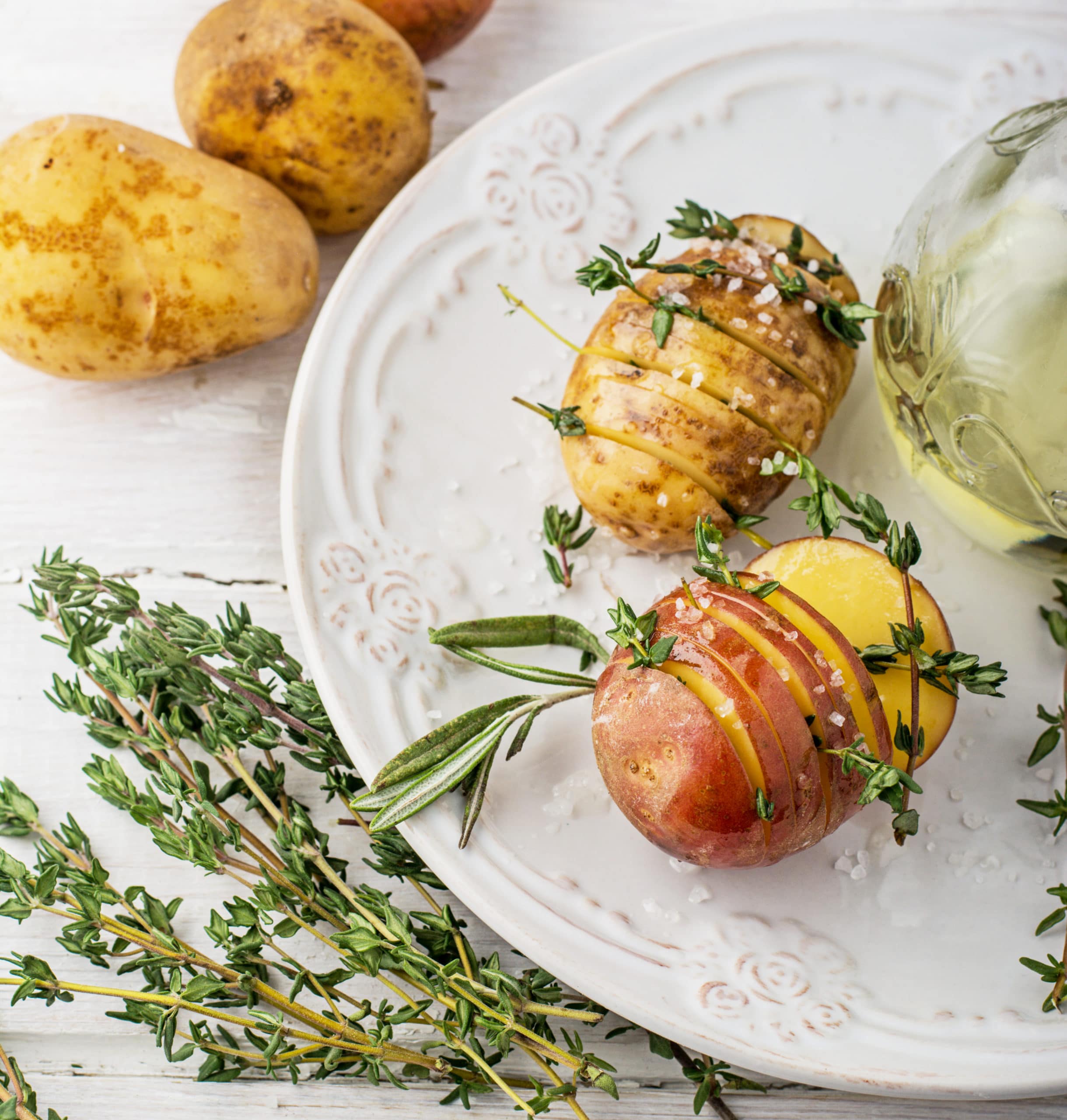
Suns Out, Spuds Out! Your Playbook for a Potato-Fueled Summer
Summer is almost here, and with it comes longer, warmer days, providing ample opportunities for people of all ages and abilities to get outside – and get moving! This is a perfect time to recognize the importance of physical movement for better health and quality of life and for nutrition professionals to share how high-quality carbohydrate foods, such as potatoes, can be strategically used to fuel physical activity. In this issue, learn more about how America’s Favorite Vegetable can support individuals in making informed, confident, and nutritious fueling choices for all types of active lifestyles.
Potatoes have been recognized as a performance fuel by elite athletes for eons. They are a nutritional powerhouse that provide a unique matrix of high-quality carbohydrates (26 g) and protein (3 grams), plus potassium – an important electrolyte that aids in muscle, cardiovascular, and nervous system function.
Skin vs. No Skin?
– Skins or no skins, potatoes are nutritious. In fact, most of the potassium and vitamin C in potatoes is found in the flesh, not the skin. A medium potato with the skin contains 620 milligrams of potassium – more than a medium-size banana!
What’s more, potatoes are versatile and affordable, making them an easy, convenient way to fuel before, during, and after exercising. In fact:
- One study found Russet potatoes supported prolonged exercise performance as effectively as carbohydrate sport gels. Read the full study here.
- Research has shown in young males, that consuming 30 g of potato protein concentrate following resistance training increased muscle protein synthesis at the same rate as an equivalent amount of milk protein. Read the full study here.
Ask the Expert!
Kelly Jones, MS, RD, CSSD, LDN
Owner, Kelly Jones Performance Nutrition and Student Athlete Nutrition
“The best way to improve nutrition is to focus on what you can add to the plate in both delicious and realistic ways.”
Q: How do potatoes fit into conversations with clients who are physically active?
A: Potatoes are one of the top performance foods I recommend due to the powerhouse of nutrients they provide as well as their versatility and affordability. Potatoes not only provide the carbohydrates we need to fuel our muscles and brain, but they also contain potassium, vitamin C, and other important nutrients. Since many athletes are at a greater risk of iron deficiency anemia, I’m also often educating that vitamin C can enhance plant iron absorption. Potatoes are an excellent source of vitamin C (30% DV) and contain iron (6% DV) – an ideal combo!
Q: What are a few meal planning strategies you recommend for on-the-go clients?
A: From busy moms to elite athletes, I always try to provide practical, time-saving culinary tips. For example, cook fresh potatoes in the microwave for 3 minutes before making classic baked potatoes. If you’re in a pinch, baby potatoes can cook all the way through in 5 minutes or you can throw frozen potato drums into the air fryer for the perfect crispy bite.
Winning Recipes: Whether making a performance plate or on-the-go snack, potatoes are a nutrient-dense vegetable that can help you perform at your best. Check out these potato-packed recipes to energize the body and brain:
- Prepare (& Repair).
- Carbohydrates are king when it comes to fueling for exercise. The carbs in this potato main dish, Power Baked Potato, will increase glycogen stores ahead of your next event, helping to sustain energy and prevent fatigue. Plus, potatoes can be perfectly paired with any protein to replenish muscles post-exercise.
- Perform.
- Potatoes can be a portable, high-performance snack with ease and convenience. Pack these Potato Performance Power Bites to perform at your best – no matter the exercise.
- Celebrate!
- These Oven Baked Potato Chips with Whipped Feta Dip are well-suited for any team gathering or part of a game-winning victory meal. This simple and fun recipe provides the perfect harmony of nutrition and flavor in every bite.
For more science-based nutrition resources, including research, client-friendly handouts and evidence-based tools, visit our Nutrition Professionals page.


